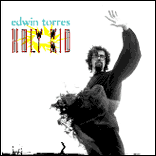 |
|
| lingo | |
| e-vents | |
| books | |
| sound | |
| about | |
| lobes | |
| contact | |
|
|
|
|
||||||||||||||||||||||||||||||||||||||||||||||||||||||||||||||||||||||||||||||||||||||||||||||||||||||||||||||||||||||||||||||||||||||||||||||||
 |
[ 1 ] [ 2 ] [ 3 ] [ 4 ] [ 5 ]
Holy Kid Kill Rock Stars, KRS 293, Produced by Edwin Torres, Jordan Trachtenberg Engineered at RetroMedia Studios, Red Bank, NJ
review by bart plantenga/American Book Review May, June 2001 excerpt from review of 4 CDs; Vocalor Jaap Blonk (Staalplaat – www.staalplaat.com), With(In)communicado David Dvorin (Re:Beat – www.shindig.com/buddy/ddvorin), Holy Kid Edwin Torres, Ghost Orchid Various (Ash International – www.ashinternational.com) Language breeds viruses that periodically scramble hegemonies of the rational and the linear. These viruses have many names: jibberish, twaddle, tripe, Pig Latin. But when injected into the wind-pipes of sound artists, it becomes scat singing, Jabberwocky, sound poetry, Dada, détournément, pop lyrics, incantation. These viruses destabilize the effects of deterministic ennui and arouse particularly endearing forms of liberating chaos and sensory reorientation, and I call them neologistical glossalalia or post avant pop palilogies!? They include: "GabbaGabbaHey" (Ramones), "Shoobeedoobeedoobop" (Skeeter Davis), "BingBamBom" (Sophia Loren), "Whambamalam" (Leadbelly), "WangDangDoodle" (Koko Taylor), "Boopboopeedoop" (Betty Boop), BiddlediBobbodiBoo" (Lawrence Welk), and "DooWaDiddy" (Bo Diddley). But also Jackson MacLow, Dr. Seuss, Bobby MeFerrin, Daddy Freddy, Lewis Carroll, the Dadaists, Raoul Haussman, Burroughs, Gysin, Giorno, Bernard Heideseck, John Bennet, Joyce, Diamanda Galass, Meredith Monk, and Yoko Ono; up through master phonem-ological samplers like Negativland or Scanner and beyond. The artists under review here utilize neologistical glossalalia, manipulating morphemic units like others mix drinks. And despite (or maybe expressly because of) its inherent break with conventional sense, it effectively rewires cognitive functions, allowing us to transcend the conventional consciousness of talking heads, prevaricators, advertisers, and lawyers to ultimately undo what doers have done. A chaser chasing away the bitter tastes of a poisoned language. . . . Holy Kid: Torres' debut makes a delirious shambles of the logical ballast attached to language. He honed his quirky confabulissimo verbalocious gymngnostics on NY's Lower East Side where attitude is the designer clothing of spirit, somehow emerging with impish heart intact. Comedian-alchemist? Lewis Carol as tongue-twisting rapper? Burroughs cuts-up Dr. Seuss? Scatty metathesis duet of Kurt Scwitters and Ricky Ricardo? Yesyesyes. He's an omnivorous inclusionist with influences including the rapper Rakim, Samuel Beckett, PJ Harvey, and "original word gangsta" Gerard Manley Hopkins. Torres' unique DIY Cuban-meets-Dada style – playful mishmashes of lo-fi effects, ad glibs, cultural tipsiness, outlandish (d)Esperanto – giddily deflects us away from linearity, perfect margins, and the collateral damage of late-corporatese. On stage, Torres turns into a gawky Elasticman put on random selection mode, anthropo-morphing his neologistic sputterings into something provactively entertaining and poignant. Holy Kid captures Torres' on-stage psychotic kinesis as he digs through society's collective tyrano-thesaurus-hex. His way-gone pata-onomatopoetic tongues stir up cerebrum-based alchemies as abstract sounds morph to evoke tangible objects and what lies embedded within them. As he puts it, "sound, vision, experience – meaning is where you find it, where you let yourself find it." Spelling, grammar, and syntactical hegemonies all fall victim to "Torresian" tornadoes, as he declares "the wind is ours" to help us rearrange words and other mental furniture. "I find a sort of madman's joy when I'm plowing down what's stood before to let what's new replace it…best chance is to educate audience/society into learning how to listen." I asked him if we needed to strip words of meaning before our tainted language could be effective again. "The alchemist's invention:…emotion, thought, image/objectified into a thing called words. So I place words, my words…in certain order to scramble their meaning, painting strokes using colors always seen, the unseen color appears at every new viewing." . . . Zen/Dada poet Shinkichi Takahashi noted that "there is in Dada something positive that affirms all from where all has been negated and demolished." And in the introduction to Takahashi's book Afterimages (1970), Takashi Ikemoto notes, "Zen rejects words…simply because all of us adhere to them in disregard of the naked truth." These discs – be it Blonk's own extended phonetic alphabet, Dvorin's decompositional samples, Torres' tipsy Esperanto, or Orchid's EVP – make us question the conventional manners in which we process language and sonic information.
[ top ]
|



